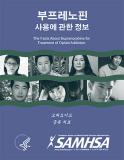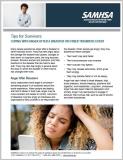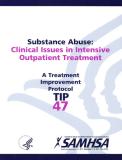
This updated workbook is a companion piece to the Anger Management Manual; it summarizes the information presented in each session of the 12-week program and provides worksheets for completing exercises.
Units per Product
Download
Anger Management for Substance Use Disorder and Mental Health Clients: Participant Workbook (Korean Version)
File Type: PDF
File Size: 793 KB







